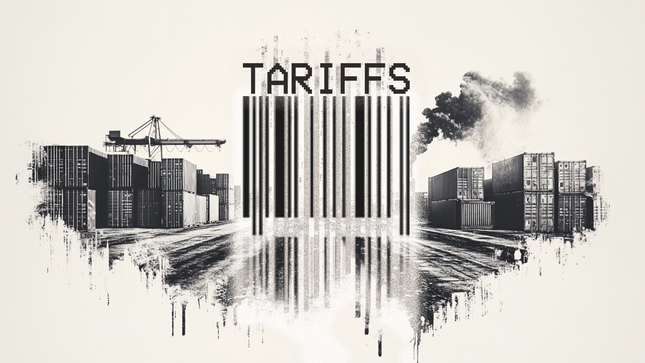- There is a difference between broker types and their regulation levels.
- Conflicts of interest may arise in one-sided markets.
- Leverage is used all the time, and the key is not to use it excessively.
- It is the trader's responsibility to either avoid risky brokers and high leverage.
Why do market-makers provide high leverage? Given that a high percentage of forex traders lose money, do these brokers take advantage of traders' risk? Or do brokers pass the orders to the interbank network and make money off of spreads? Here are a few answers.
* This post originally appeared as a response to a Premium user's question in Trading Studio. Sign up to get access to FXStreet's top analysts.
Types of brokers
There are different types of brokers, and the short advice is to use regulated brokers. There is a lower chance of the broker working against the trader – and at least someone to complain to in such a case.
The longer answer – albeit not a full description of all brokers – is that some transfer orders to the interbank network and some do not. Those that pass all orders to the network are intermediaries, making money off of spreads and sometimes fees they charge from users.
Market makers may match orders from different traders. For example, if there is one user going short on EUR/USD and another going long, using the same size, these orders balance each other. In this case, there is no need to pass the order to the interbank market.
When the balance breaks
The problem arises when the balance significantly breaks, and everybody goes in one direction and the broker does not pass the orders to the interbank network. In that case, the broker is basically positioned against its clients, which is a problematic conflict of interest.
In the infamous case of the "SNBomb" from January 2015, brokers relied on the Swiss National Bank's promise to maintain the 1.20 floor under 1.20. When the SNB suddenly let go of the peg, EUR/CHF collapsed. That caused some brokers to go bankrupt.
Conflicts of interest
But even in normal conditions, that conflict of interest mentioned earlier is problematic enough. First, if all the traders make the right bet and the broker doesn't cover, there is a risk for the broker and risk for traders – being unable to withdraw funds.
Secondly, it means that these brokers assume that most traders will not only lose money but also fully liquidate their accounts. In such cases, the brokers' income comes not from spreads but from the traders' deposits – almost everybody would liquidate their accounts.
Leverage, the good, the bad and the ugly
Regarding leverage, it is a tool used by all types of traders, investors, and banks to make money. There is nothing inherently wrong with leverage, as that is what allows markets to function at a faster rate. Even at the strictest jurisdiction, the most prudent banks use leverage when holding only a small amount of deposits as a guarantee against bigger loans.
When people take out mortgages, they leverage a small downpayment in order to buy a house, and most of them pay their debts.
The problem begins when leverage becomes excessive, turning a small trade into a big gamble. Leverage levels of triple digits are undoubtedly excessive, and some brokers take advantage of the temptation to use only $1,000 to make a trade worth $100,000. That can have devastating consequences as the opportunity to make significant gains also means a high probability of demolishing the account.
When the account vanishes quickly, not only the money is gone, but also the lesson.
The trader's responsibility is not to use excessive leverage, even if it is offered by the broker. More reasonable levels should be used, resulting in smaller profits – but a higher chance of learning from losing trades before liquidating the account.
Final thoughts
Some brokers try to temp traders to use high leverage. It is the trader's responsibility to use lower leverage or to switch to another broker, if they think their practices are risky. Circling back to the beginning, the best practices are: trading with a regulated broker, and using low leverage, especially in times of high liquidity.
Information on these pages contains forward-looking statements that involve risks and uncertainties. Markets and instruments profiled on this page are for informational purposes only and should not in any way come across as a recommendation to buy or sell in these assets. You should do your own thorough research before making any investment decisions. FXStreet does not in any way guarantee that this information is free from mistakes, errors, or material misstatements. It also does not guarantee that this information is of a timely nature. Investing in Open Markets involves a great deal of risk, including the loss of all or a portion of your investment, as well as emotional distress. All risks, losses and costs associated with investing, including total loss of principal, are your responsibility. The views and opinions expressed in this article are those of the authors and do not necessarily reflect the official policy or position of FXStreet nor its advertisers. The author will not be held responsible for information that is found at the end of links posted on this page.
If not otherwise explicitly mentioned in the body of the article, at the time of writing, the author has no position in any stock mentioned in this article and no business relationship with any company mentioned. The author has not received compensation for writing this article, other than from FXStreet.
FXStreet and the author do not provide personalized recommendations. The author makes no representations as to the accuracy, completeness, or suitability of this information. FXStreet and the author will not be liable for any errors, omissions or any losses, injuries or damages arising from this information and its display or use. Errors and omissions excepted.
The author and FXStreet are not registered investment advisors and nothing in this article is intended to be investment advice.
Editors’ Picks

US Dollar struggles as Trump tariff uncertainty grows
The US Dollar struggles to stay resilient against its rivals to start the new week as investors assess the headlines surrounding the US trade regime. After the Supreme Court ruled against US President Trump's tariffs, Trump announced that he will hike global tariff rates to 15%.

Gold pops above $5,200, four-week highs
Gold is holding onto its bullish tone on Monday, reaching new multi-week highs just past the $5,200 mark per troy ounce. Fresh trade-war concerns, coupled with rising geopolitical tensions in the Middle East, are keeping demand for the yellow metal well on the rise.

EUR/USD keeps the bid bias just over 1.1800
EUR/USD has started the week on a positive foot, hovering around the 1.1800 region in the latter part of Monday’s session. The pair’s recovery comes on the back of a decent decline in the US Dollar, as investors keep their attention on the evolving US–EU trade relationship after President Trump’s announcement of sweeping global tariff hikes.

Crypto Today: Bitcoin, Ethereum, XRP intensify sell-off as tariff uncertainty weighs
Bitcoin, Ethereum and Ripple are trading amid increasing selling pressure at the time of writing on Monday, as investors react to fresh trade uncertainty over US President Donald Trump’s push for more tariffs.

Supreme Court nixes tariffs, Trump teases 15% global tariff
On February 20th, the Supreme Court ruled that Trump’s global tariffs under IEEPA authority were unconstitutional, effectively nullifying the framework. However, the relief was short-lived. Within hours, Trump floated a 15% blanket tariff under an alternative legal authority.
RECOMMENDED LESSONS
Making money in forex is easy if you know how the bankers trade!
I’m often mystified in my educational forex articles why so many traders struggle to make consistent money out of forex trading. The answer has more to do with what they don’t know than what they do know. After working in investment banks for 20 years many of which were as a Chief trader its second knowledge how to extract cash out of the market.
5 Forex News Events You Need To Know
In the fast moving world of currency markets where huge moves can seemingly come from nowhere, it is extremely important for new traders to learn about the various economic indicators and forex news events and releases that shape the markets. Indeed, quickly getting a handle on which data to look out for, what it means, and how to trade it can see new traders quickly become far more profitable and sets up the road to long term success.
Top 10 Chart Patterns Every Trader Should Know
Chart patterns are one of the most effective trading tools for a trader. They are pure price-action, and form on the basis of underlying buying and selling pressure. Chart patterns have a proven track-record, and traders use them to identify continuation or reversal signals, to open positions and identify price targets.
7 Ways to Avoid Forex Scams
The forex industry is recently seeing more and more scams. Here are 7 ways to avoid losing your money in such scams: Forex scams are becoming frequent. Michael Greenberg reports on luxurious expenses, including a submarine bought from the money taken from forex traders. Here’s another report of a forex fraud. So, how can we avoid falling in such forex scams?
What Are the 10 Fatal Mistakes Traders Make
Trading is exciting. Trading is hard. Trading is extremely hard. Some say that it takes more than 10,000 hours to master. Others believe that trading is the way to quick riches. They might be both wrong. What is important to know that no matter how experienced you are, mistakes will be part of the trading process.
The challenge: Timing the market and trader psychology
Successful trading often comes down to timing – entering and exiting trades at the right moments. Yet timing the market is notoriously difficult, largely because human psychology can derail even the best plans. Two powerful emotions in particular – fear and greed – tend to drive trading decisions off course.

